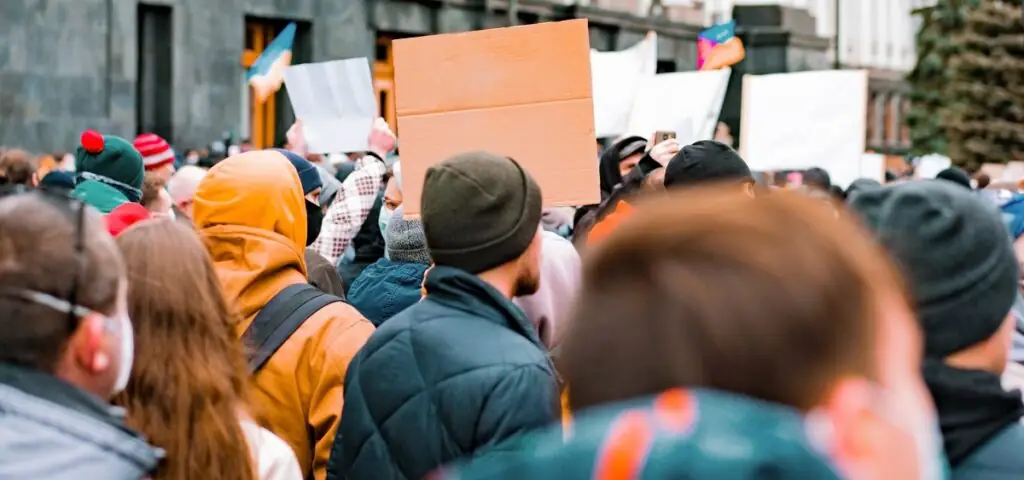In November, an anti-NATO protest involving acts of vandalism and violence in Montreal sparked debate around protesting and when it crosses the line. In Quebec, everyone has a right to express themselves and protest, but there are limits to this right.

You have the right to protest
Protesting is a way for people to express their views publicly, usually to bring attention to a cause or to show disagreement with something. The Canadian Charter of Rights and Freedoms and the Charter of Human Rights and Freedoms (Quebec Charter) protect two fundamental freedoms: the freedom of opinion and expression and the freedom of peaceful assembly. Together, freedom of expression and freedom of peaceful assembly create a right to protest peacefully.
You’re allowed to protest in certain public places. For example, you can protest in the street, on the sidewalk or in a park. These are traditional and historical places for protesting.
You can show up unannounced and cover your face
You don’t have to tell the police the place, route or time of an upcoming protest. During the 2012 Quebec student protests, a Montreal by-law required protesters to give these details to the police. However, in 2019, the Court of Appeal said that this rule violated protected freedoms and struck it down from the by-law. The Court of Appeal explained that protests are inherently disruptive and that using public roads for peaceful protests is a legitimate activity.
You’re allowed to wear a mask during a protest. Again during the 2012 Quebec student protests, a Montreal by-law banned protesters from wearing a mask. The Quebec Superior Court concluded that freedom of expression and freedom of peaceful assembly include the right to wear a face covering during a protest. For example, someone might want to wear a mask because they fear retaliation.
You must protest peacefully
While the right to protest is broadly protected by the law, it’s not absolute. As stated, the Canadian and Quebec Charters protect the right to protest peacefully. The Quebec Court of Appeal has stated that violence undermines key aspects of freedom of expression, like sharing ideas, personal growth, and seeking truth.
This means that while you can share any message during a protest, you can’t engage in any acts of violence or threats of violence. For example, you can’t destroy or damage property or injure someone. If you commit a crime during a protest, you could be arrested and charged.
|
Other recent events like the Freedom Convoy’s long-term protests during the COVID-19 pandemic or environmental activists blocking the Jacques-Cartier Bridge have also sparked debate around protesting. How long can protests last and how disruptive can they be? In January 2024, the Federal Court analyzed the government’s response to the Freedom Convoy and discussed the limits of a protest. The court has also concluded that the government’s decision to invoke the Emergencies Act was unreasonable and violated the Charter of Rights and Freedoms. The federal government has decided to appeal this decision to the Federal Court of Appeal. Stay tuned! |





